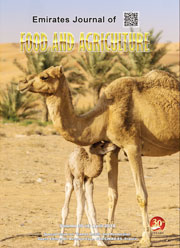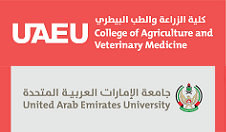Impact of a plant feed additive containing vitamin C on Holstein cow’s performance under heat stress conditions
DOI:
https://doi.org/10.9755/ejfa.2022.v34.i3.2835Abstract
A phytobiotic with secondary metabolites and with vitamin C, elaborated with Emblica officinalis and Ocimum sanctum (Polyherbal vitamin
C), was evaluated for milk production, reproductive performance, cytokines, and reactive oxygen species (ROS) production in first calving
Holstein cows under heat stress conditions. Two hundred primiparous cows with 20 ± 6 days in milk (initial body weight 521 ± 70.0 kg)
were fed a basal diet (19.40% CP; 1.43 Mcal/kg Nel dry matter (DM)) and randomly assigned to one of the treatments: 0 or 20 g/d of
the Polyherbal vitamin C was integrated daily into the diet with the fresh total mixed ration directly in the feeder. The experiment lasted
131 days and measurements of production were made daily and milk composition every 30 days. Pregnancy was recorded at the first
service and accumulated in the experimental period. Results showed that the production and composition of milk were not affected by
the supplementation with Polyherbal vitamin C, however, the accumulated gestation rate improved from 45.74 to 59.34% (P = 0.06),
particularly that of the first service (20.21 to 34.06%; P = 0.03). Mastitis problems were reduced from 21.28 to 12.09% (P = 0.09).
Polyherbal vitamin C did not modify the production of IL-1β, while the serum levels of IL-6 decreased significantly (P <0.001) compared
to the unsupplemtented cows. All these results indicate that the Polyherbal vitamin C can improve the gestation rate of Holstein dairy
cattle and have beneficial health effects by reducing mastitis problems. Also, Polyherbal vitamin C can exert an anti-inflammatory effect
by lowering IL-6 levels and reducing ROS production.










 .
. 